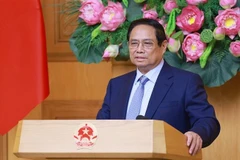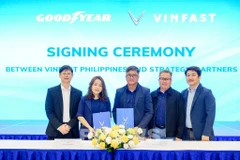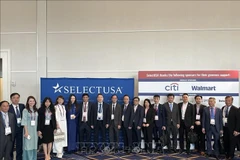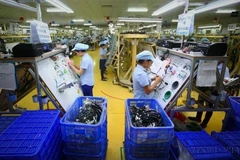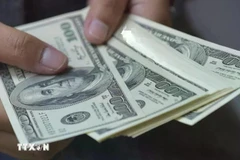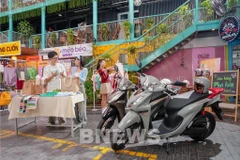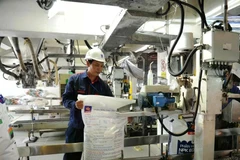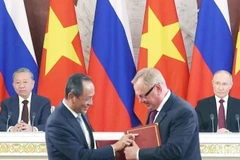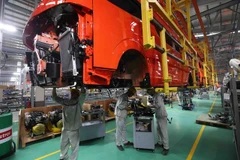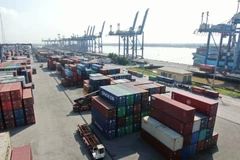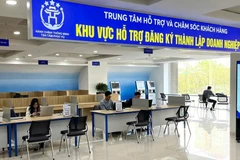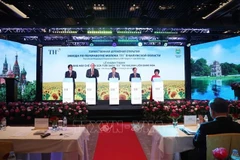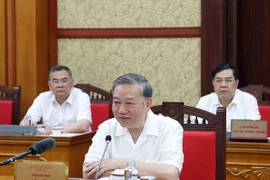VCCI Chairman Vu TienLoc said the country's bureaucratic investment procedures areobstructing both domestic and foreign investors who want to do businessin Vietnam, holding back the country in comparison with other ASEANmembers.
While once one of the most attractive investmentdestinations in Southeast Asia, the country is now ranked in only amodest position, Loc said at the conference, where experts andenterprises joined together to suggest administrative reforms that theybelieve will make the environment more attractive to investors.
Of more than 8,000 domestic enterprises and 1,500 foreign companiessurveyed in 2012, 33 percent of the former and 28.3 percent of thelatter found the investment licensing procedure to be the mostburdensome and complicated.
These figures were announced by DauAnh Tuan, deputy head of the VCCI's Legal Department, who also notedthat often contradictory investment licensing regulations appear in fivelaws, 10 decrees and nine circulars.
He added that to start aproject, enterprises have to complete at least 18 major administrativeprocedures at the ministries of Investment and Planning, Constructionand Natural Resources and Environment.
These stages includedseeking a location, requesting land use rights, making an environmentalassessment and submitting a detailed investment plan for approval.
Tuan argued that the complicated process was not only very costly forenterprises but also made it impossible for them to set realistic timeframes for their projects, creating missed business opportunities.
Deputy Chairman of the Viet Nam Contractors Association Nguyen QuocHiep - also the director of a real estate company - said that it oncetook 14 months for his business to receive investment approval from fivedifferent agencies.
"In this case everything ran smoothly and itstill took a very long time. If any problems are thrown up then thetime is even longer still," Hiep said.
"There are too manydirective documents to provide clear guidance. They are confusing evento domestic investors like me so how can foreign investors abide by ourlaws?"
Tuan said that the overlaps in procedures could beattributed to a shortage of information sharing within and between Stateagencies.
He also acknowledged that in different localities adifferent sequence of procedures is often required using differentdocuments.
He claimed that without one agency controlling thewhole process there will always be a weakness in supervising andassessing domestic projects.
Maria Soo Chung, an associate ofBaker & McKenzie Vietnam Ltd's Hanoi branch, said differentlicensing procedures exist for domestic and foreign investors.
She said that the latter will always aim to seek the simplest, shortestand most cost efficient way to carry out their investment, meaning thatthey will soon become frustrated if legally required to begin along-winded certification process.
"Administrative proceduresconcerning project implementation, such as land, construction, importsand exports are still unclear and in some cases, incoherent andincompatible with one another," she pointed out.
"We hope thatVietnam can continue on its current path of legal reform to makeadministrative procedures more transparent and predictable," shestressed.
Tuan suggested the investment procedure must be simple,systematic and consistent nationwide. He said that this will help savetime for both State authorities and enterprises while preventing therisk of corruption.
Nguyen Hung Hue, a representative of theMinistry of Justice's Department for Administrative Procedure Control,noted that investors are often placed in a disadvantaged positionbecause they do not have any tool allowing them to supervise theperformance of State agencies.
He too called for the removal of the existing procedural obstacles.
"It is necessary to establish and maintain only one channel to provideinformation about the regulations and the results of applications," hesaid.
Hue estimated that if the time to complete proceduresis reduced by one third, enterprises can save more than 1 trillion VND(47.6 million USD) per year.-VNA

